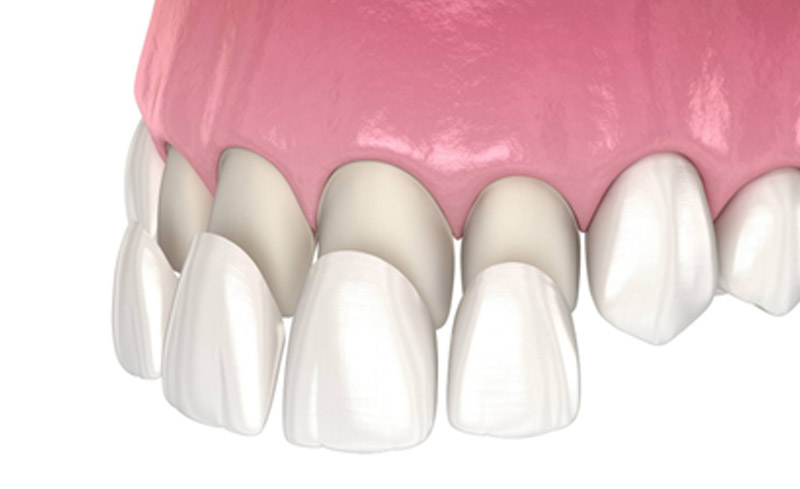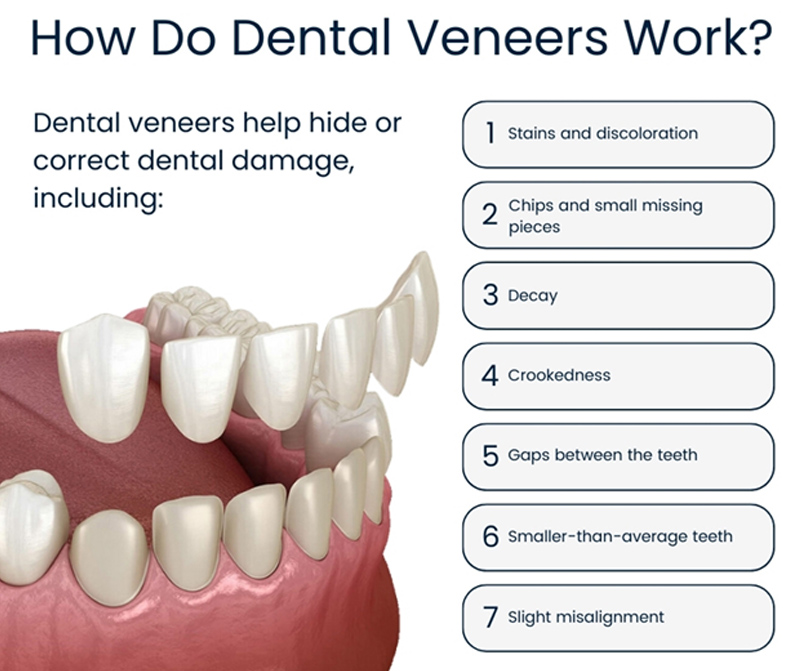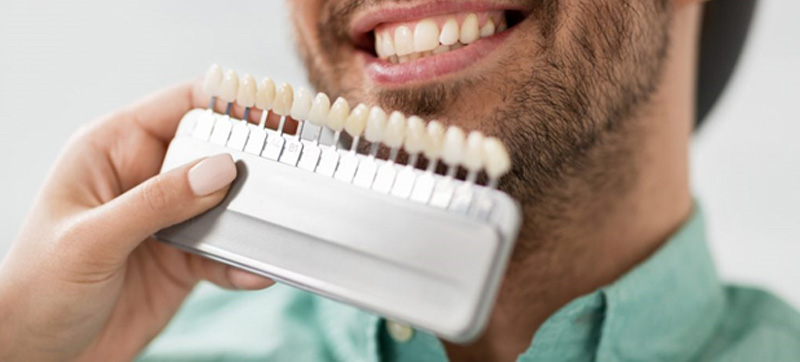What You Should Know About Dental Veneers
Cosmetic & Restorative Dentistry in Orland Park, IL
At Absolute Dental of Orland Park, we understand how a confident, beautiful smile can change your life. Our experienced dentists specialize in custom veneers that correct imperfections, brighten your smile, and restore your confidence. Below, you’ll find a complete guide to dental veneers — what they are, how they work, benefits, process, care tips, and answers to common patient questions.
What Are Dental Veneers?
Dental veneers are ultra-thin, custom-made shells (usually porcelain or composite resin) that cover the front surface of your teeth to correct and enhance their appearance. They are a popular treatment in cosmetic dentistry to:
- Conceal stains and severe discoloration
- Mask chips, cracks, or minor fractures
- Close small gaps between teeth
- Reshape teeth (e.g. too short, slightly misaligned)
- Improve symmetry or uniformity of your smile

How Veneers Work & What They Can Treat
When placed by a skilled cosmetic dentist, veneers “camouflage” imperfections. Common corrective uses include:
- Hiding intrinsic stains that don’t respond to whitening
- Repairing small chips or fractures
- Covering minor misalignment issues
- Closing diastemas (small gaps)
- Reshaping slightly irregular teeth
In many cases, veneers are an excellent option when whitening, bonding, or orthodontics alone aren’t sufficient to achieve your desired result.
Before placing veneers, any underlying oral health issues (e.g. cavities, gum disease) must be addressed. A healthy foundation is essential for durability and success.

At Absolute Dental, we’ll help you choose the right type based on your goals, budget, and oral health.
Veneers vs Crowns vs Implants — What’s the Difference?
- Veneers cover only the front surface of a tooth and are ideal when the underlying tooth is mostly intact.
- Crowns encase the entire visible portion of a tooth, providing more structural support when much of the tooth is damaged or decayed.
- Implants replace a missing tooth entirely — a titanium post is placed in the jawbone, and a crown is mounted on top.
Thus:
- If you have severe decay or need structural rebuilding, a crown or implant may be more appropriate.
- If you want aesthetic improvements on otherwise healthy teeth, veneers are often a superior cosmetic solution.
The Veneer Procedure — What to Expect (Step by Step)
- Consultation & evaluation
We’ll examine your teeth, take imaging (X-rays, photographs), and discuss your goals. If any decay, gum disease, or fillings are needed, those treatments come first. - Smile design & preparation
After selecting shape, shade, and type, we remove a small amount of enamel (if needed) to make room. We then take a digital or physical impression. - Fabrication
Your veneers are crafted in a specialized dental laboratory (or sometimes in-house) to fit precisely. - Temporary placement (optional)
Temporary veneers may be placed while waiting for the final ones. - Final fitting & bonding
We try in the veneers, adjust shade or fit if needed, then bond them using strong dental cement and light-curing technology. - Polishing & finishing
After bonding, we polish and refine edges to ensure a seamless, natural appearance. - Follow-up & monitoring
We’ll schedule follow-ups to check fit, comfort, and function. Minor adjustments can be made.
The typical turnaround is 2 to 3 appointments over several weeks, depending on your case.

How to Care for Your Veneers
Veneers require care similar to natural teeth. Here are best practices:
- Brush twice a day with non-abrasive (low RDA) toothpaste
- Floss daily — avoid shredding floss
- Use an alcohol-free mouthwash
- Avoid chewing on hard items (ice, pens, fingernails)
- Don’t use teeth as tools (e.g. opening bottles)
- Avoid staining foods/drinks (coffee, tea, red wine) especially early on
- If you grind your teeth (bruxism), wear a night guard
- Keep regular dental checkups and cleanings
With proper care, your veneers can last 10+ years or more — porcelain ones often outlast composite ones.
Cost of Veneers in Orland Park, IL
The cost of veneers depends on:
- Type (porcelain vs composite)
- How many teeth are being veneered
- The complexity of preparation
- The laboratory fees
At Absolute Dental of Orland Park, we estimate:
- Porcelain veneers: approximately $1,200 – $2,200+ per tooth
Because veneers are usually classified as cosmetic treatment, full insurance coverage is rare. Some dental plans may cover a partial amount, particularly if a veneer is deemed medically necessary. Our team can help you navigate financing, in-office payment plans, and third-party dental care credit.
Why Choose Absolute Dental of Orland Park?
- Locally owned, patient-focused dental practice
- Experienced cosmetic dentists with veneers expertise
- State-of-the-art digital imaging, shade matching, and dental labs
- Comfortable, caring environment tailored to each patient
- Flexible payment and financing options
- Strong track record of successful smile transformations
We aim to give you not just a more beautiful smile, but a functional, long-lasting one too.
Frequently Asked Questions (FAQ)
Good candidates typically have good oral health (no active cavities or gum disease), adequate enamel, and realistic expectations. If your teeth are severely misaligned or structurally compromised, alternative treatments may be recommended.
Most patients report minimal discomfort. Local anesthesia is used during enamel preparation, and any sensitivity afterward is usually mild and temporary.
With proper care, porcelain veneers often last 15–20 years or more; composite veneers generally last 5–10 years. Longevity depends heavily on oral hygiene, habits, and care.
Porcelain veneers resist staining very well. Composite veneers are more vulnerable but can still maintain color if you avoid excessive use of staining substances (coffee, tea, wine) and maintain regular cleaning.
Veneers cannot be whitened once placed. It’s important to choose the desired shade before fabrication. If you whiten your natural teeth later, the veneers may no longer match.
When properly fitted, veneers should feel natural and should not interfere with your bite. We carefully check bite alignment and make adjustments during placement.
No extraordinary care is needed — just excellent oral hygiene: brushing gently, flossing daily, using non-abrasive products, and regular dental checkups.
Yes. Many patients choose veneers only on their front (esthetic) teeth — often 6 to 10 — to create a uniform, beautiful smile.
After your final bonding appointment, the result is immediate: a transformed smile you can see instantly.
Absolutely. We use advanced shade-matching, translucency techniques, and custom design to ensure your veneers blend seamlessly with your natural teeth and facial features.

